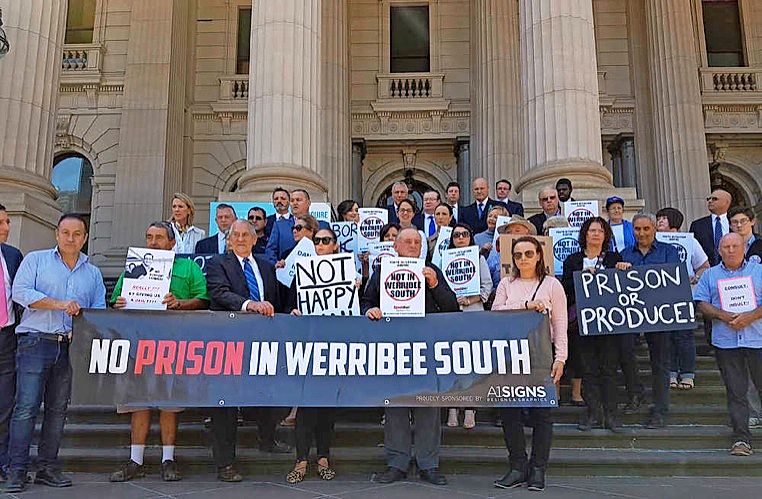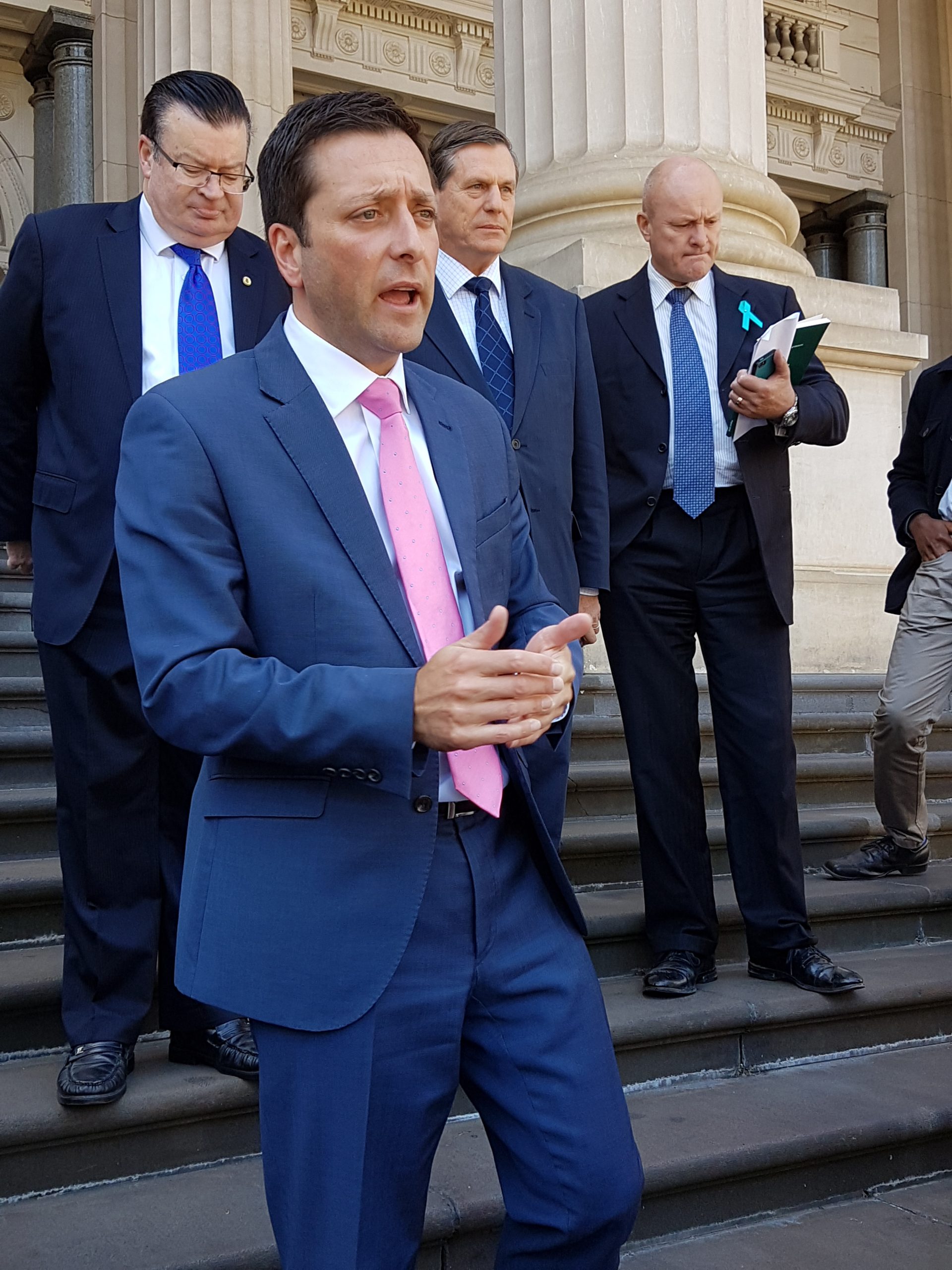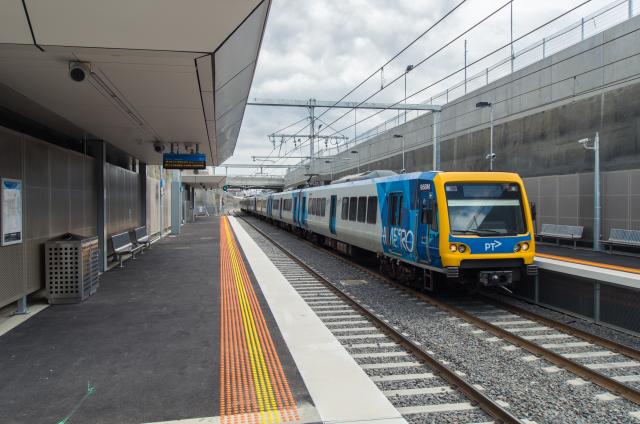Wyndham residents took their fight against the proposed $288 million Werribee South high-security youth prison all the way to State Parliament today in a bid to get the government to stand up and take notice.
About 25 residents from the Speak Out – Wyndham’s Voice group sat in on question time this morning after last week’s rally of 8000 people in Werribee’s city centre failed to sway the government’s mind.
And inside Parliament, Opposition Leader Matthew Guy took treasurer and Werribee MP Tim Pallas to task for failing to represent the views of his electorate.
Mr Guy called on the Werribee MP to account for why he hasn’t backed residents in their overwhelming opposition to the Hoppers Lane site, questioned why he didn’t attend last week’s community rally and why neither Wyndham council or locals had been consulted on the location prior to a decision being made.
He finished off the 50-minute grilling by calling on Mr Pallas to resign.
Mr Pallas refused to back down and said he supported the government’s decision.
“When a community seeks to be engaged, I am more than willing to discuss these issues with my community,” he said.
Speak Out president Lisa Heinrichs said residents would continue to ramp up the fight against the youth detention centre location, with a bigger rally planned for the steps of Parliament House towards the end of March.
The group is focusing on gaining 50,000 signatures opposing the location by the end of February, with a view to having the petition tabled in Parliament next month.
Group vice-president Glenn Goodfellow vowed to “use any means we can to make it clear how wrong this location is”.

The government has yet to back down on the issue, despite a Star Weekly online poll revealing only 11 per cent of respondents plan to vote Labor at the 2018 state election.
Meanwhile, a call-out from Morwell MP Russell Northe to consider building the youth prison in Gippsland has fallen on deaf ears.
The office of Daniel Andrews has rebuffed multiple Star Weekly requests for an interview with the premier.
In a media release put out on Monday, Mr Pallas said the Hoppers Lane site remained the “preferred location”.
“I have always stood up for the people of Werribee, and I will continue doing that, knowing that this is an opportunity for our growing community, one that will create up to 3000 construction and related jobs and deliver an estimated economic benefit of almost $420 million for Wyndham City,” he said.
The release follows a letter sent out to Werribee electorate residents by Mr Pallas last week, in which he promised to “respond to local concerns while also delivering on a facility which the circumstances demand”.
Mr Guy said the premier and Mr Pallas had taken the Werribee electorate for granted.
He said expanding the Malmsbury facility, so that all youth justice facilities were located on one site, seemed to be the most logical solution.
“I don’t understand why the government has chosen a site that is new when we have locations in Deer Park, in Sale, in Malmsbury that already have correctional facilities,” he said.
Wyndham mayor Henry Barlow said the council was seeking a second meeting with Youth Affairs Minister Jenny Mikakos this week.
Cr Barlow said the issue had been dominating council time and resources as officers worked to find alternative locations for the youth detention centre – despite still not receiving a copy of the site selection criteria as requested.

Meanwhile, confusion reigns over the site’s zoning.
A spokesman for Planning Minister Richard Wynne said the Hoppers Lane location fell within the urban growth zone, but RMIT Professor Michael Buxton, who was the chairman of the premier’s green wedge working party, said the site fell within the green wedge zone.
Referencing maps sourced from Wyndham council, Professor Buxton said the government was over-riding its own planning controls.
“It’s located between a highly productive agricultural zone and outer-suburban development,” he said.
“Corrective institutions are a prohibited use in that zone.
“It’s just really thumbing your nose at properly considered planning controls that would be expected to be applied to everybody else.”









